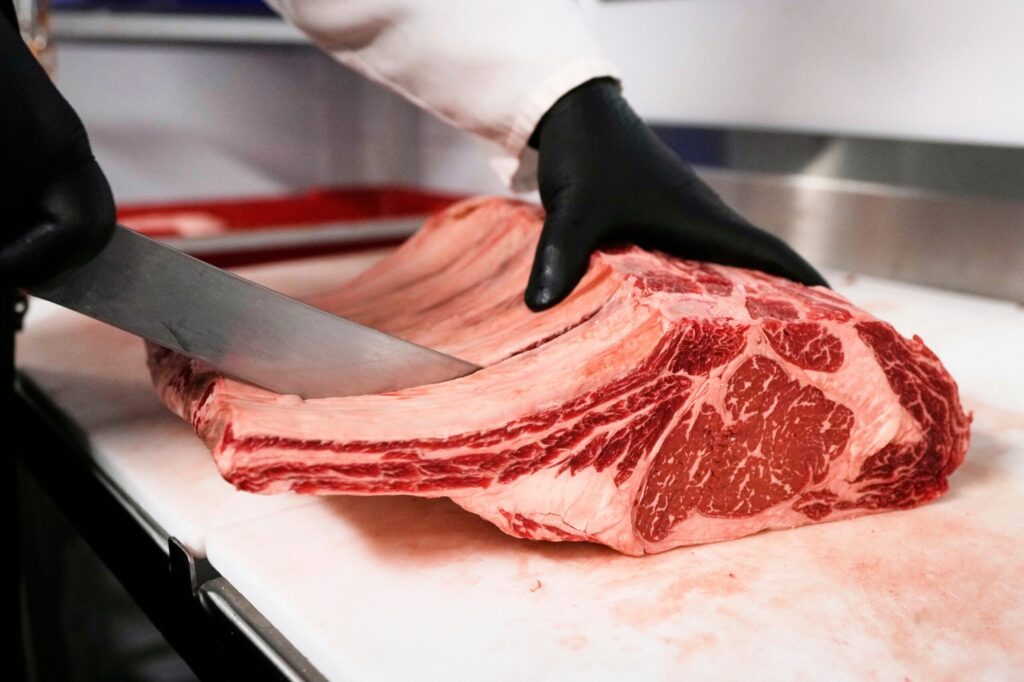Colorado Gov. Jared Polis targets juvenile crime, cattle theft
Colorado has seen progress in tackling crime, but Gov. Jared Polis on Thursday told lawmakers that more work needs to be done, particularly in the area of youth crime and the theft of cattle.
In touting successes in recent years, Polis cited bipartisan legislation that, he said, has created a “common-sense, data-driven public safety plan” to crack down on crime and prevent it.
Polis, who talked to the Colorado General Assembly for his his annual State of the State address, said that, between 2023 and 2024, data shows crime rates have dropped in almost every category. He said property crime rate is down 15%, homicides have decreased 9%, and car thefts — Colorado has been at the top or near the top of the list in this category for several years — have dropped by 26%.
However, youth crime remains a worry. In early 2024, after lawmakers enacted tougher car theft laws, Colorado Springs authorities said they were still having issues with juvenile crime, saying the state has a lack of accountability in place for young offenders.
On Thursday, Polis agreed, saying, “While crime rates are down statewide, one area in need of improvement is preventing and reducing youth crime.”
Working to find a solution, Polis said the budget he introduced this year calls for additional support to prevent these crimes, for expanded resources for young people, and for increased bed capacity at the Division of Youth Services to offer young adults who enter the criminal justice system the opportunity to get back on track and avoid becoming repeat offenders.
“Under my new proposal, youth offenders who are currently being sent all over the state will be able to stay closer to home and get the support they need faster,” Polis said.
“Our commitment to public safety extends to all who call our state home – people and animals alike,” he added, highlighting the specific rural issue of livestock theft.
Livestock theft, he said, is not a “thing of the past.”
“We are committed to holding cattle rustlers accountable,” he said. “With local sheriffs and the Brand Board leading the way, I directed our leaders at the Department of Agriculture and Department of Public Safety to coordinate and provide additional support and work closely with local law enforcement to use the full extent of the law to catch and convict wrongdoers.”
As he noted last year, the governor called on the Colorado Bureau of Investigation to crack down on illegal firearms activity. In passing the law, Polis said Colorado seized 62 illegal firearms in the past four months alone, “making our streets, neighborhoods and communities safe.”
Additinally, Polis said the state will boost Colorado’s emergency dispatch system to ensure emergency responders get where they need to go without delay.
It also means working with Rep. Ryan Armagost, a Republican, and House Majority Leader Monica Duran, a Democrat, to strengthen the penalty for firearm theft, regardless of the market value, he said.
Polis also said the state must honor the people’s will to support more public safety funding. In approving Proposition 130 in November, voters added $350 million in funding for law enforcement that would go toward hiring, retention and training.
Lawmakers said they are figuring out when the state would be obligated to allocate the funds, with some noting the proposal is not clear on timelines for dispersing the money. Under the voter-approved measure, some of the money would go toward the family of officers killed in the line of duty.
“We now have the opportunity to implement this as quickly as possible to ensure no family of a law enforcement officer lost in the line of duty needs to worry about their needs being met,” the governor said.
Advance Colorado, which led efforts behind Proposition 130, is urging the state to give the family of Golden Officer Evan Dunn, who was killed while responding to a crash, the funding that the ballot measure intended.
Outside of the state Capitol, district attorneys and local law enforcement have called on lawmakers to get tougher in a variety of areas, including making possession of any amount of fentanyl a felony. This effort failed last year.
Last year, the U.S. Drug Enforcement Administration’s Rocky Mountain Field Division seized 2.61 million fentanyl pills in the state, setting a new record.
Nearly 1.8 million fentanyl pills have been seized by the DEA’s Rocky Mountain Field Division in 2024 so far. With four months left in the federal fiscal year, the department expects to surpass last year’s record.
Over the summer, Sen. Byron Pelton, a Republican from Sterling, told Colorado Politics that state lawmakers tend to be too soft and too afraid to crack down on crime. Like the car theft crisis, Pelton said if lawmakers continue to avoid the problem, Colorado’s fentanyl crisis will only worsen.











